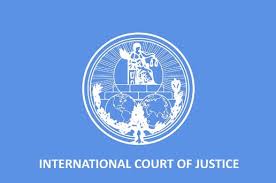Case Brief: Corfu Channel Case (United Kingdom v. Albania)
Case Brief: Corfu Channel Case (United Kingdom v. Albania)
Court:
International Court of Justice (ICJ)
Citation:
ICJ Reports 1949, p. 4
Date:
Judgment delivered on April 9, 1949
Parties:
Applicant: United Kingdom of Great Britain and Northern Ireland
Respondent: People's Republic of Albania
Facts:
In 1946, British naval ships were navigating the Corfu Channel, a narrow strait between the Albanian coast and the Greek island of Corfu.
On October 22, 1946, two British destroyers, HMS Saumarez and HMS Volage, struck mines in Albanian waters, causing damage and casualties.
The UK claimed that Albania was responsible for laying the mines or at least for failing to notify of the danger.
Albania denied responsibility, arguing the mines had been laid by a third party and that the UK had violated Albanian sovereignty by entering the channel without permission.
Issues:
Was Albania responsible for the mine explosions that damaged British ships?
Did the UK violate Albanian sovereignty by sending warships through the channel without consent?
What reparations were due?
Legal Principles:
State Responsibility: A state is responsible for injuries caused by mines in its territorial waters if it knew or should have known about the mines and failed to warn other states.
Right of Innocent Passage: Warships may pass through international straits used for navigation under customary international law, but passage must be innocent.
Violation of Sovereignty: Entry of warships into territorial waters without consent is a breach unless justified by international law.
Decision (Holding):
The ICJ held that Albania was responsible for the minefield in its waters since it failed to notify other states about the danger.
The Court found that the UK did not violate Albanian sovereignty by sending ships through the Corfu Channel because the channel was an international strait used for navigation.
The Court ordered Albania to pay compensation to the UK for damages and loss of life caused by the mine explosions.
Significance:
Established important principles on state responsibility for hazardous conditions in territorial waters.
Affirmed the concept of innocent passage through international straits.
Clarified that states must warn others of known dangers in their waters.
It was one of the first cases decided by the ICJ, shaping the development of public international law regarding maritime navigation and state responsibility.
Summary:
| Aspect | Details |
|---|---|
| Case | Corfu Channel Case (UK v. Albania) |
| Court | International Court of Justice |
| Date | 1949 |
| Key Issues | State responsibility for mines; innocent passage; violation of sovereignty |
| Holding | Albania liable; UK right to innocent passage; compensation ordered |
| Importance | State responsibility and law of navigation in territorial waters established |












comments